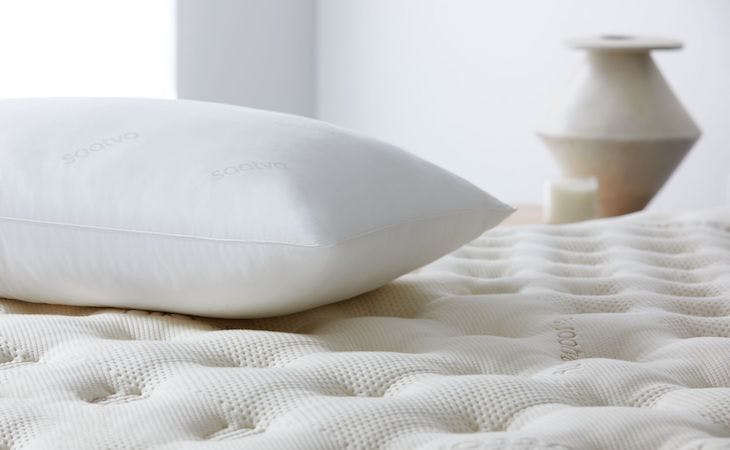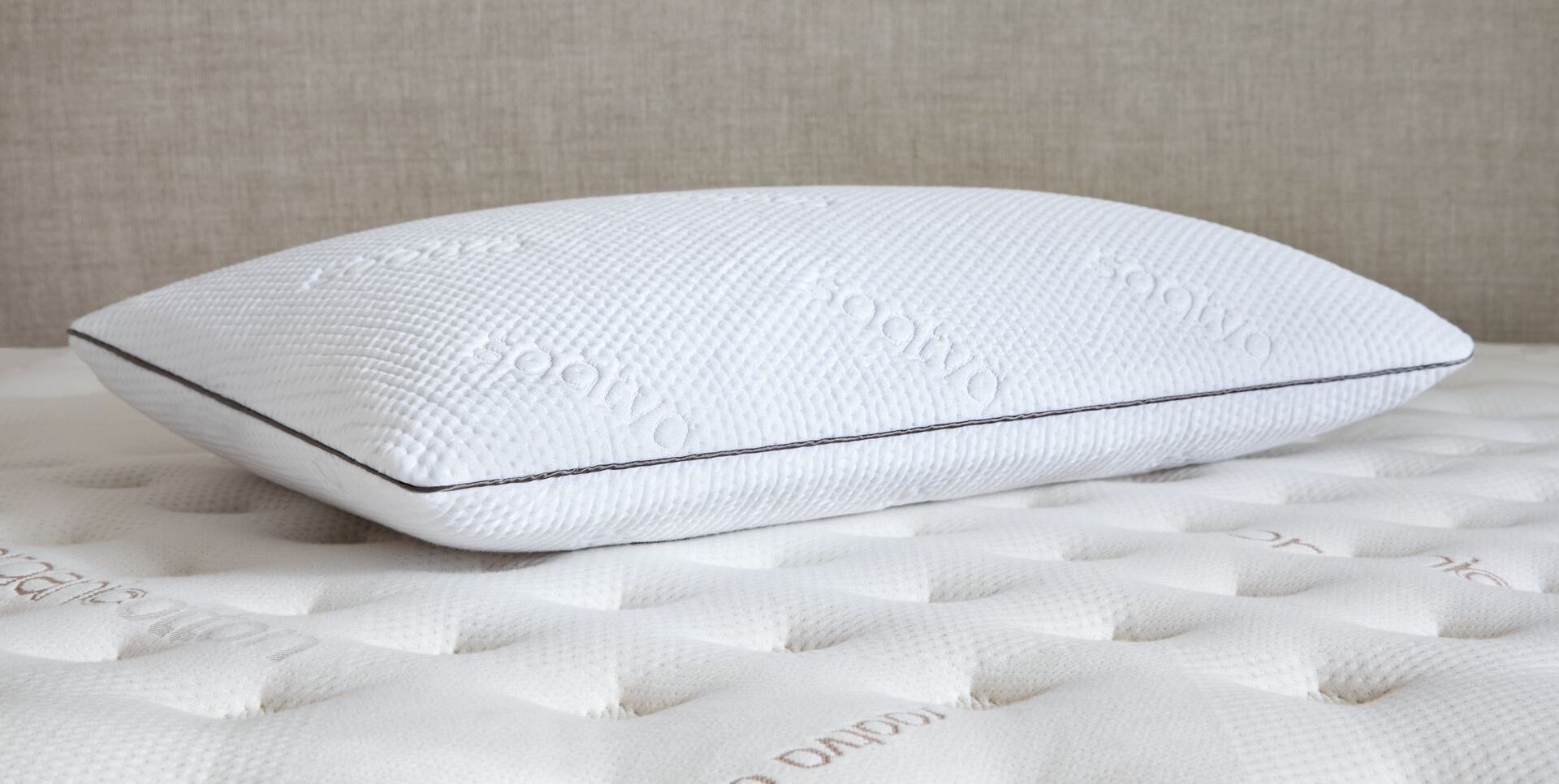Your old pillow still looks fine, in that it still looks like a pillow. But if you think the pillow you got as a wedding present 10 years ago is in the same condition as it was back then, think again.
Pillows—even high-quality ones—lose their shape after a few years of daily use and no longer properly support your head and neck while you sleep.
What’s more, they also accumulate a lot of yucky germs you don’t want to have near your face for eight hours straight. So exactly how long do pillows last and how often should you replace yours? Here’s what you need to know.
How long should your pillow last?
High-quality pillows can help you get a good night’s sleep. If you have a good pillow under your head, it makes it so much easier to fall asleep at night. But how long should your pillows last?
A pillow’s lifespan can vary depending on the type of pillow you select and its fill. Although there’s no definitive answer to this question, most experts recommend changing your pillow every one to two years as a good rule of thumb.

But if you pay attention, you’ll know, as in most cases your pillow will “tell” you it’s time to retire it.
7 signs it’s time for a new pillow
Pillows should be replaced fairly frequently, so if you haven’t gone pillow shopping in a while, it might be time. You can usually tell it’s time for a new pillow by looking out for the following signs:
- You wake up with neck pain
- You can’t stop sneezing
- Your sleeping position has changed
- Your pillow smells
- Your pillow is discolored
- Your pillow is lumpy
- Your pillow doesn’t snap back into its original shape
If you’re experiencing any of these things, then it may be time for a pillow replacement.
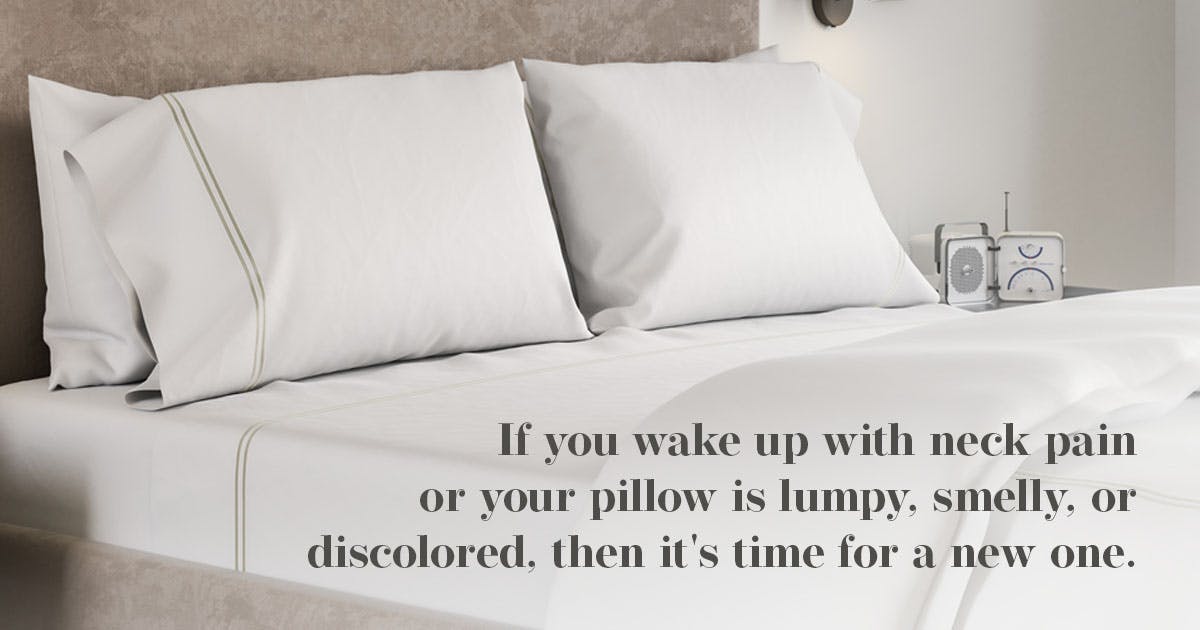
You wake up with neck pain
Your pillow should offer adequate back and neck support, promoting correct spinal alignment. If it doesn’t do that anymore, then you’ll likely experience neck pain. Some old pillows will even contribute to back pain as well. Waking up with back or neck pain is one of the tell-tale signs it’s time for a new pillow.
You can’t stop sneezing
Research shows that after a couple of years of daily use, up to 30% of a pillow’s weight will be made up of dead skin cells, dust mites, and their feces. Sleeping close to so much buildup and allergens can cause an allergic reaction (think: sneezing, watery eyes, and a stuffy nose). If you’ve noticed an uptick in allergy-like symptoms, an old pillow could be to blame. (Learn about the types of pillow stuffing that are best for allergies.)
Your sleep position has changed
Every sleep position calls for a different pillow. Side sleepers should use slightly thicker and firmer pillows, back sleepers should choose thinner to medium-thick pillows, and stomach sleepers should sleep on slightly thinner and softer ones. If you’ve recently changed your sleeping style, then you might need to change your pillow to ensure you’re being properly supported overnight. (Does your mattress no longer suit your sleep style? Here’s what you need to know about flippable mattresses and how they can benefit your sleeping preferences.)
Your pillow smells
After prolonged use, your pillow will be covered in skin oils, germs, and drool. All of these can cause your pillow to start emitting unpleasant odors. A smelly pillow is past its prime.
Your pillow is discolored
The sweat, germs, and body oils that accumulate on your pillow can also stain. If your pillow is noticeably discolored, then it might be time to get a new one. To prevent this in the future, you can use pillow covers and pillow protectors to extend the lifespan of your pillow.
Your pillow is lumpy
Over time, your pillow might become lumpy, which could affect your sleep quality. Lumps make it so only certain parts of the pillow are comfortable, meaning you might end up tossing and turning more frequently throughout the night. If your pillow is lumpy, then consider getting a new one.
Your pillow doesn’t snap back to its original shape
The quickest way to check whether a pillow is still in good condition is the so-called bend test.” Fold the pillow in half, then let go. If it snaps back into its original position easily, it’s still in good shape. If it doesn’t, that means it might be time to replace it. The lack of resilience is a sign your pillow may have lost the ability to properly support your head and neck.
How to properly care for your pillow
Once you have a new pillow, there are things you can do to help keep it in good condition for as long as possible. Namely, you’ll want to clean your pillow regularly. Keep in mind the care instructions will vary depending on the pillow type you choose.
Down pillows or synthetic pillows can usually be washed in a washing machine on a delicate cycle (always check the manufacturer’s instructions first, though). Run them through two rinse cycles after the wash, as soap residue can cause feathers to clump. Then put them in a dryer (if the care instructions say this is permissible) on a low-heat setting. Be sure to fluff your feather pillows after drying so they stay soft and cozy.
Down alternative pillows are a great option if you want a low-maintenance pillow that can just be thrown in the washing machine. Most memory foam pillows and latex pillows can only be spot cleaned and then air-dried.
If your foam pillow is washable, you can soak it in a tub of warm water with a little detergent, then squeeze out the suds and rinse thoroughly several times.
Since you’re going to be putting a pillowcase over your freshly washed and clean pillow, you don’t have to spot-treat stains, but this is still an option. For dark stains, you can pretreat them like you would a stain on your clothes. (Is it time for a new pillowcase? Here’s how to tell if a standard-size pillowcase is right for you.)
What to do with your old pillows
Decided it’s time to get rid of your old pillow? Instead of throwing it in the trash, consider repurposing it instead. Some ways to reuse old pillows include turning them into DIY floor cushions, using them as pet beds, and cutting them up into cleaning rags.
You can also donate any pillows you plan on replacing soon. While they may not be a good use for you, others may benefit from getting a new pillow at a lower cost.
Getting high-quality pillows for your bedroom from Saatva
When replacing pillows, it can be hard to figure out which pillow type is right for you and your sleeping position. But when you do find the right pillow, it can often lead to better sleep and a more comfortable experience in bed.
If you’re looking for a quality pillow, then check out Saatva’s options. We offer the best pillows in every category, including
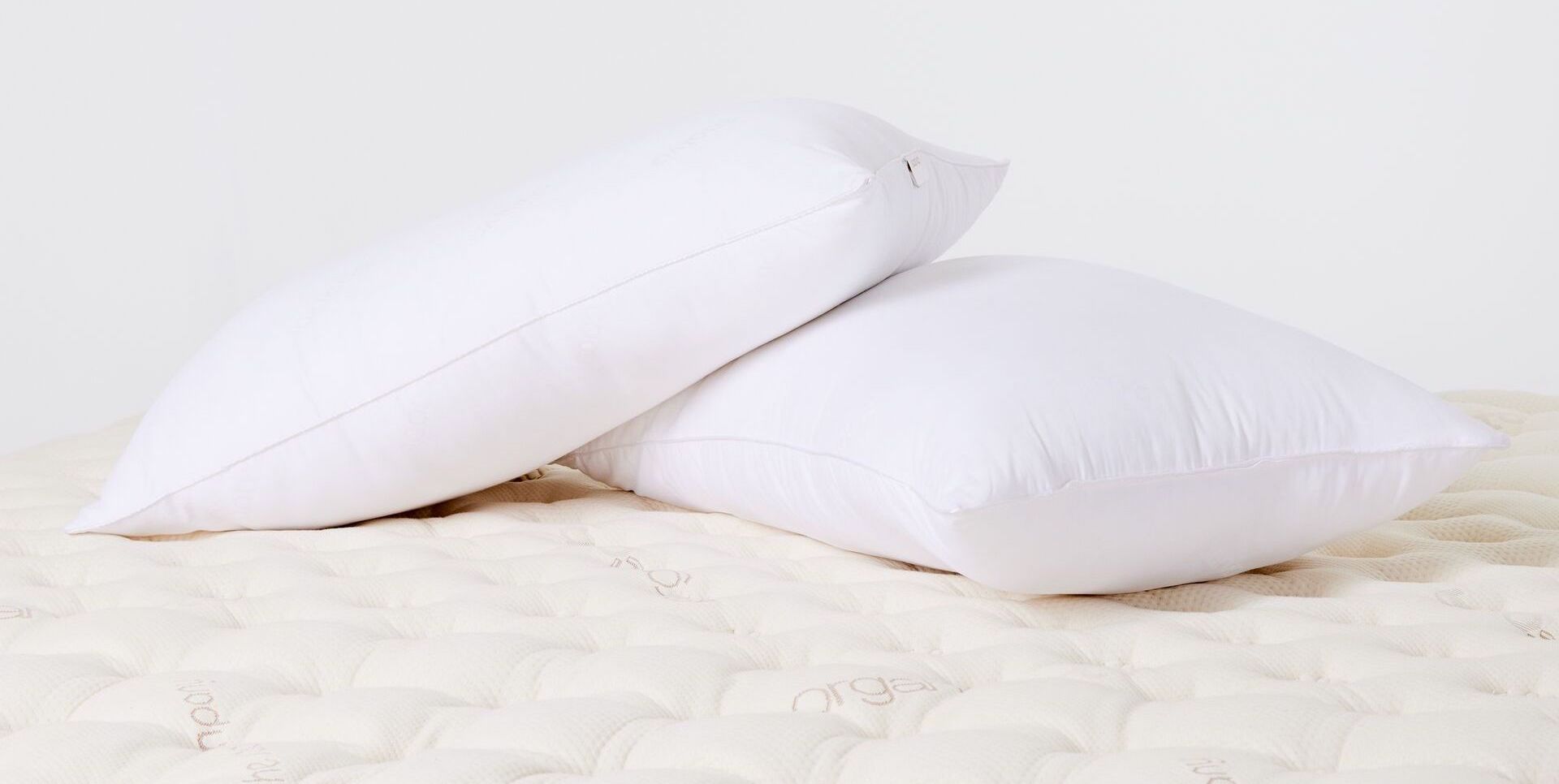
Hypoallergenic with a plush and airy feel that’s perfect for cuddling
,
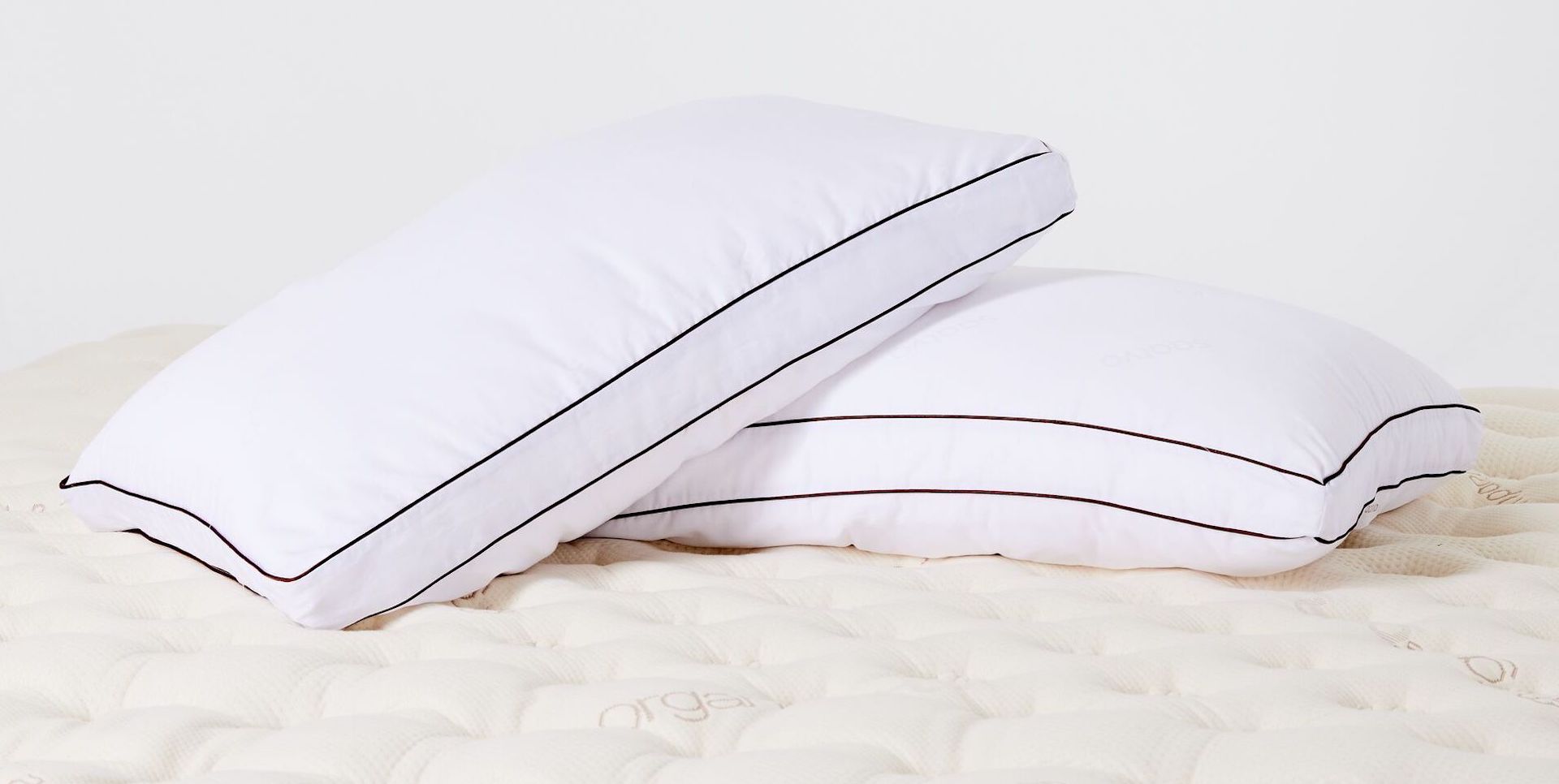
Hotel-quality comfort with responsive & ultra-breathable support
, and
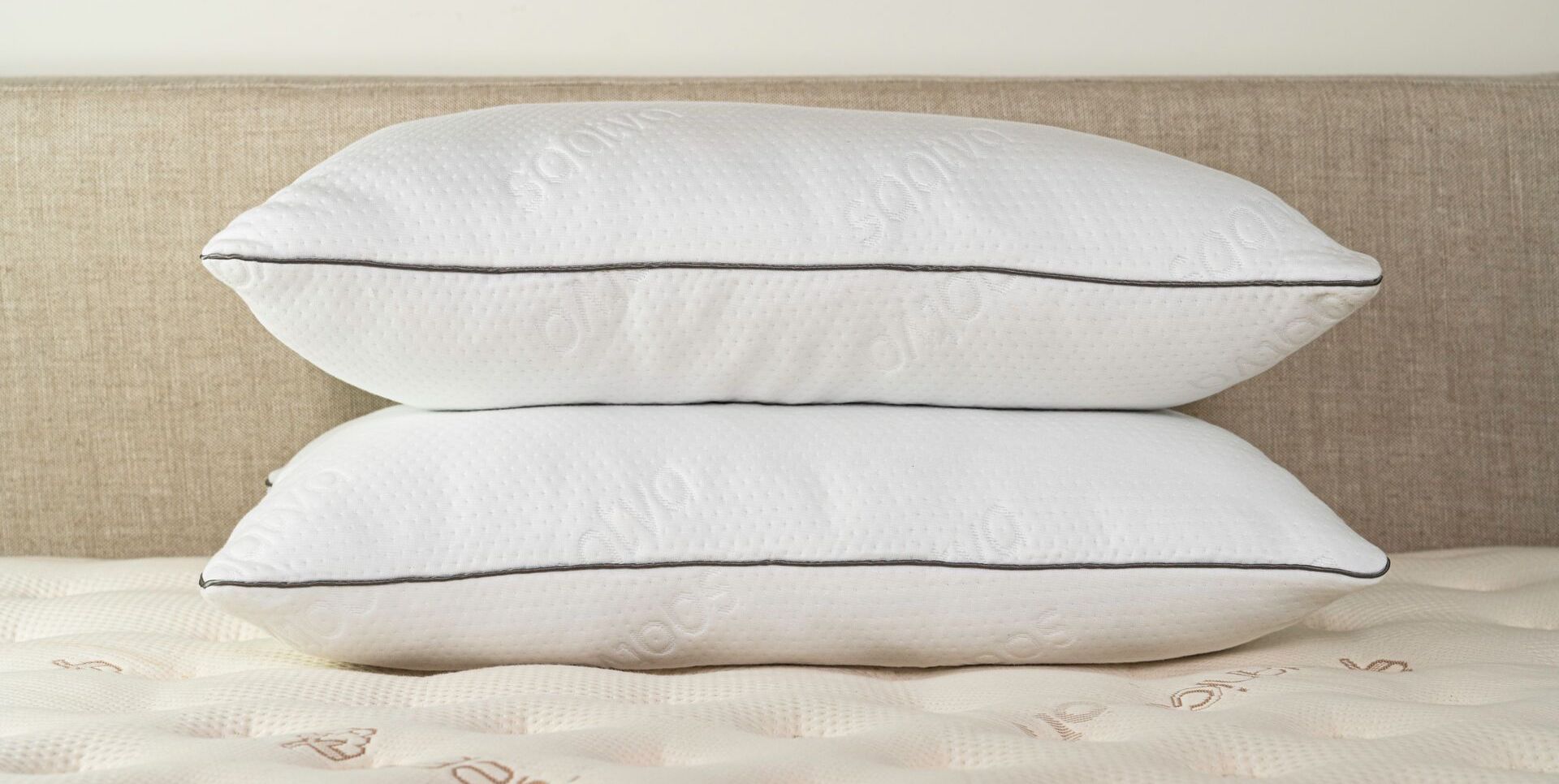
Cooling comfort and contouring support ideal for side sleepers
All of our pillows are made with high-quality materials to ensure maximum comfort for your head and neck as well as excellent durability for a long lifespan. See how Saatva pillows compare to competitors and learn the difference.

